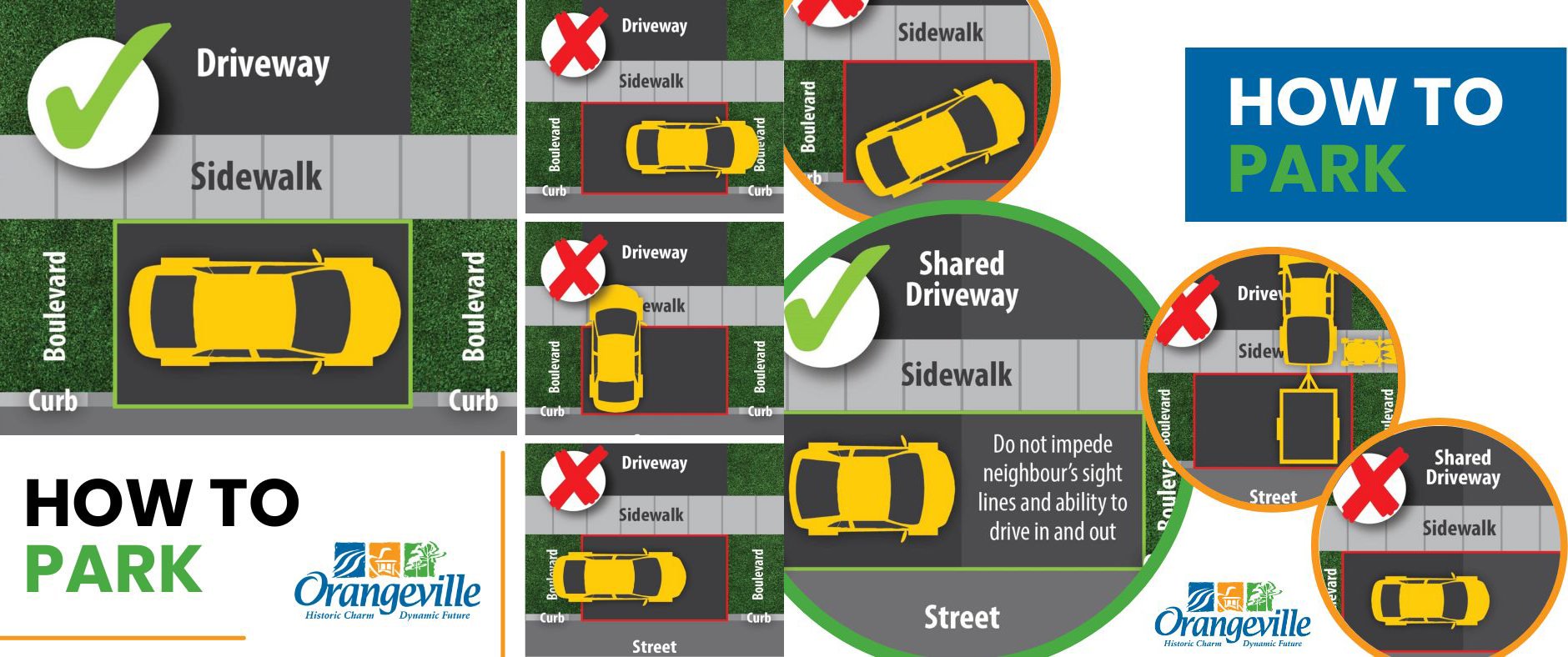To allow for snow removal during winter months, the Town of Orangeville has winter parking regulations.
There is no parking on a residential street or highway in the Town of Orangeville from December 1 to March 31 between the hours of 2 a.m. and 7 a.m. or there has been a significant weather event.
Why is street parking prevented in the winter in Orangeville?
Simply put, vehicles parked on the road prevent plows from doing their jobs. Often, plowing occurs overnight to prepare for the next day, and parked cars means streets cannot be completed.
What are the parking restrictions?
Overnight Parking - Between 2 a.m. until 7 a.m.
This applies to all streets with parking in Orangeville, not just residential streets. Vehicles parked on any street in Orangeville overnight may receive a $25 ticket per violation.
Daytime Parking - Prior to streets being plowed/during heavy snowfalls
If your street has not been plowed or there is a heavy snowfall occurring/significant weather event, do not park on the street. Any vehicles that prevent plows from being able to complete a street for salting or plowing can be ticketed.
Overnight winter parking
Overnight winter parking is available in parking lots at Rotary Park, Fendley Park, Municipal Lot at the rear of 168-178 Broadway, the Municipal Lot at the rear of 82-90 Broadway, and the lot located at 180 Broadway.
Be sure to pay attention to signage at the lots to know where to park each night. An easy way to remember how to park in the lots is to park on the side for the day you will be picking up your vehicle. If you’re parking on a Monday night to pick up Tuesday morning, park in the Tuesday spot.
Parking on the lower Boulevard of your driveway
Parking on the Boulevard portion of your driveway in the Town of Orangeville is permitted, however there are specific guidelines to how you can park on this section.
The graphic below demonstrates the correct and incorrect ways to use this space on a single and shared driveway. Your vehicle must be fully within the allowable space in order to avoid a ticket. No portion of your vehicle may overhang onto the sidewalk or the road. In a shared driveway, your vehicle cannot impede access for your neighbour.

